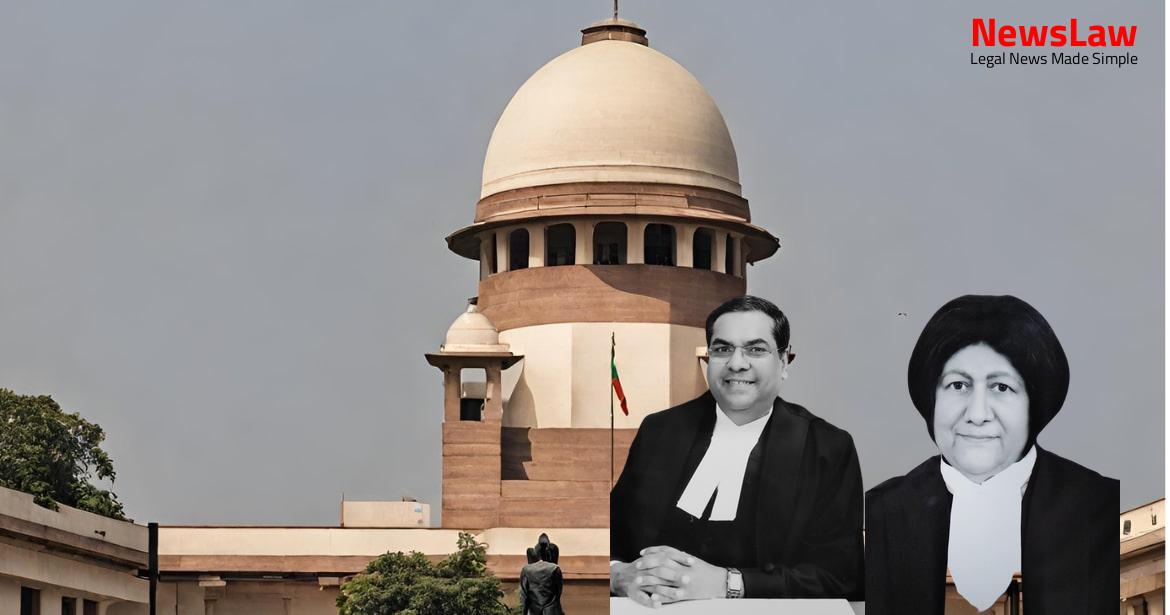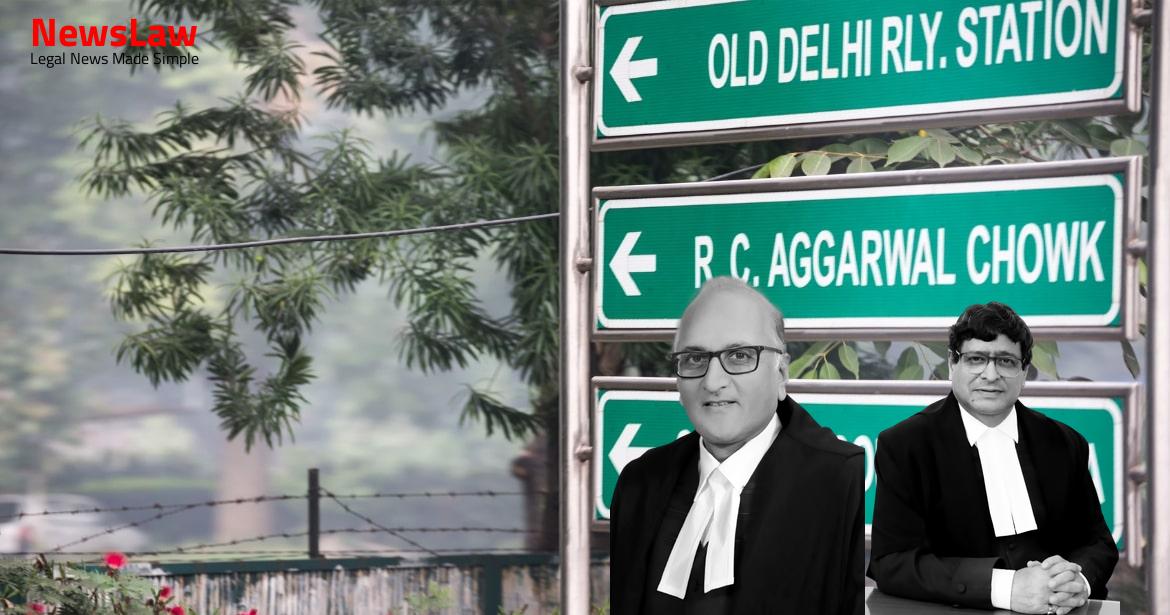In a significant legal ruling, the Supreme Court of India affirmed the judgment passed by the High Court of Judicature at Bombay, upholding the conviction of the appellant in a criminal case. The case involved the appellant’s involvement in the ill-treatment and subsequent death of the deceased. The chain of circumstances presented in the case led to a clear and decisive outcome. Justice prevailed as the court concluded that there was only one logical conclusion based on the complete chain of circumstances.
Facts
- The High Court upheld the conviction under Section 302 IPC.
- The appeal is against the judgment passed by the High Court of Judicature at Bombay.
- The appellant was sentenced to life imprisonment under Section 302 IPC.
- The appellant was exonerated from charges under Sections 498A and 304B IPC.
- The appellant was found guilty of ill-treating the deceased by both the Trial Court and the High Court.
- Appellant gave a bottle of poison to the police claiming deceased consumed poison from it.
- Appellant reported his wife’s death to the police on 21.05.1990.
- Discrepancies found in the injuries on the body of the deceased as recorded before postmortem and during postmortem.
- Postmortem report indicated death due to violent asphyxia with Organo Phosphorus poisoning, ruling out suicide.
- Statements made by the appellant under Section 313 Cr.P.C. were relied upon by the High Court.
- Marks of nails on the deceased’s cheeks, throat, wrists, and bangle glass marks were found.
- Postmortem doctor opined death was due to suffocation by hands causing smothering.
- Appellant and deceased were residing together adjacent to the factory where the incident occurred.
- Postmortem examination revealed 13 injuries, all ante-mortem, with internal injuries and hemorrhage.
- Evidence presented by various witnesses regarding appellant’s stay with his wife and reporting of her death due to poison.
Also Read: The Case of Deed of Gift Acceptance: Raman Aithan Ashari vs. Bhandaram
Analysis
- Appellant’s presence at the place of occurrence established through his own statement under Section 313 Cr.P.C.
- Circumstantial evidence rules out reasonable likelihood of appellant’s innocence.
- Conviction based on circumstantial evidence as there were no eye-witnesses.
- Deceased showed resistance to forcible administration of poison.
- Conviction under Sections 498A and 304B IPC set aside due to doubts on multiple convictions.
- Appellant attempted to pass off the murder as suicide despite fresh injuries and other incriminating circumstances.
- Deceased residing adjacent to appellant’s factory strengthens the evidence against the appellant.
- The chain of circumstances establishing the guilt of the appellant is complete and unbroken.
- Both the trial court and the High Court correctly concluded that the chain of circumstances led to only one possible conclusion.
- The conclusion arrived at in this case is deemed to be the only logical outcome based on the complete chain of circumstances presented.
Also Read: Constitutional Authority in Rent Control Jurisdiction: Supreme Court’s Verdict
Decision
- Judgment and order under appeal affirmed
- Appeal dismissed
Also Read: Analysis of Evidence in an Attempted Murder Case
Case Title: VIJAY NATHALAL GOHIL Vs. THE STATE OF MAHARASHTRA
Case Number: Crl.A. No.-000042-000042 / 2010



